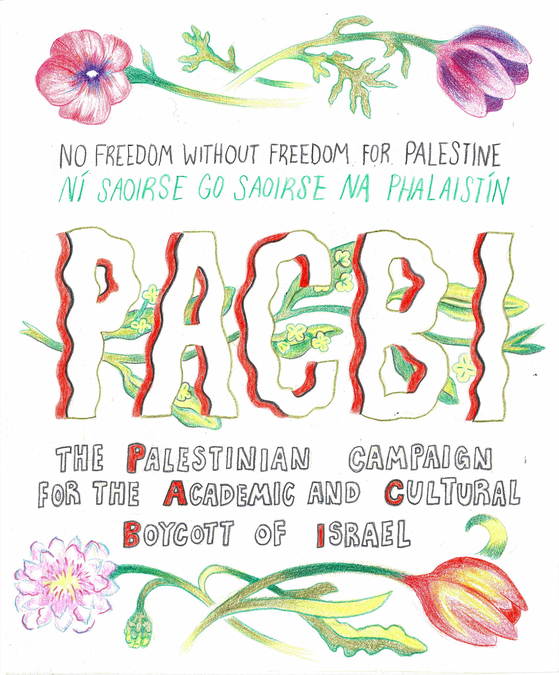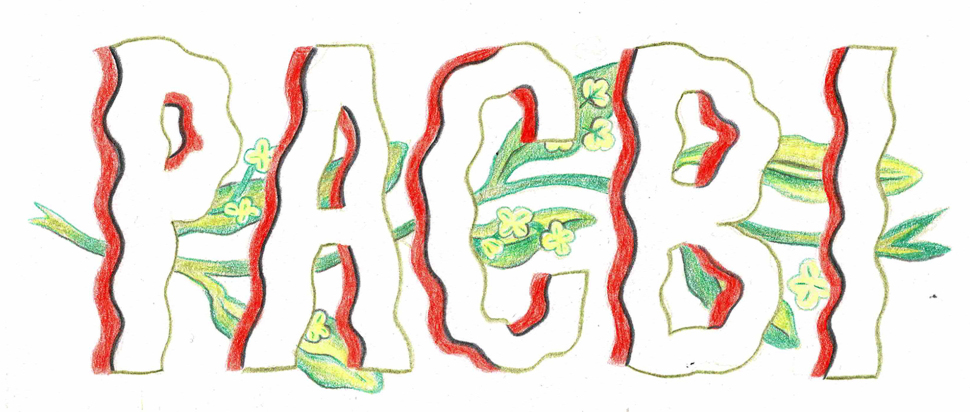A Rift in the Scottish Arts
Over the last 14 months there has been growing discontent at Scottish arts organisations and their response to the genocide in Palestine – Glasgow-based artist and writer Hussein Mitha tells us more
In the last 14 months we have witnessed a widening rift in the Scottish arts – as well as an intensification of its radical currents and subcultures.
Many cultural institutions who have long ridden the 'decolonial' wave and projected an image of 'progressive', anti-racist, socially-engaged commitments, found themselves structurally silent, complicit and lacking in solidarity when it came to the colonial genocide of Palestinians. Many of them who protested on social media about Russia’s invasion of Ukraine (Creative Scotland, for example) have had nothing to say about the daily massacre of Palestinians, enabled by the UK and Scottish governments. The urgent injunctions made by Palestinians for us to witness what was happening and for us to take action were met with stony indifference, unhinged cognitive dissonance, or outright hostility. Many, who dedicate themselves to the ‘contemporary’ and use hashtags like ‘A better world’ (SCAN – Scottish Contemporary Art Network), had nothing to say about the genocidal horrors of the present: the relationship of art to the contemporary. The configuration 'contemporary art' has never seemed more inadequate, more lacking, more flagrantly disingenuous, when the horrors of the lived moment are structurally unmentionable by the very same organisations that seek to connect art to the contemporary or the socially-engaged.
Many cultural organisations have been complicit financially through ties and sponsorships with Baillie Gifford, an Edinburgh-based investment company complicit in Israeli holdings, and have resisted attempts by art workers and audiences to act until eventually relinquishing and cutting ties with Baillie Gifford for fear of damage done to reputation. A handful of the most established and well-known artists in Scotland also still have work in the Zabludowicz Collection, a formerly London-based collection which acts as an art-washing front for Israel and has close personal ties to the Netanyahu regime, around which there has been a longstanding boycott and campaign to ‘deauthor’ (a process by which artists can remove work from the collection).
All of the above is complicity. Had the liberal bourgeois cultural institutions and artists of the imperial core taken a stand, and united in cultural resistance, refused to be silent about the genocide being livestreamed to them, Israel would not have been enabled to operate with such impunity. Israel has long manufactured consent for its colonial brutality via cultural means. Its profuse use of art and culture to manufacture consent and silence is part of its longstanding strategy to maintain the conditions in the imperial core that allow it to attempt to eradicate Palestinians. Colonial brutality is fuelled by imperial cultural consensus, by silence. The genocide is manufactured here, in the imperial heartlands, in every sense: both in terms of arms and culturally. Let history record that the official cultural institutions across the west, from Berlin to Toronto, to New York, Frankfurt and Edinburgh, played their role in facilitating the genocide. Had a professional art class not put their careers before Palestinian lives, had they refused with every fibre of their being to remain silent, Palestinian artists would not have died. Had organisations in Scotland stood by their radical, decolonial programming, their supposed championing of oppressed voices and histories, their commitment to underrepresented artists, and understood the power of the relationship between art and the contemporary, and used the full weight of their cultural platforms to mobilise for Palestine and resist, we could have broken through the silence, the consensus and the horror.

PACBI (The Palestinian Campaign for the Academic and Cultural Boycott of Israel) pledge card. Image: Art Workers for Palestine Scotland.
On the other hand, across Scotland, countless cultural practitioners, community organisers and arts workers as well as grassroots cultural groupings have pushed back against this structural inertia, moral apathy, cowardice, indifference and silence of our larger organisations and institutions. Throughout Scottish culture, often disabled-led, queer, youth, racialised, and working-class arts workers and increasingly politicised small and artist-run spaces have mobilised unrelentingly for Palestine. 148 cultural organisations across Scotland have now endorsed PACBI – the cultural boycott of Israel, forming an ever-broadening front against genocide and imperialism in the arts. More and more people seem to be outraged and frustrated by the official bodies of the Scottish arts and the flagrant classism and racism that is structural and endemic. More and more art workers are questioning and holding their employers and funders to account, and we are at a new conjuncture which requires an ongoing politicisation of aesthetics, and a using of art towards liberation, rather than the aestheticisation of politics that has been the dominant trend of contemporary art in the last few decades.
As the forces of silence and normalisation rage on unrelentingly, the ongoing genocide in Gaza, and conflagration of Israeli aggression into Lebanon, Syria and Yemen, threaten to become background noise. There are those who maintain the status quo across the Scottish cultural sector who want this to happen. It is also inevitable that the government will attempt a major crackdown on the cultural boycott if we let them. Now more than ever, it's important for all of us who work in culture and who are principled anti-imperialists, who believe in a future for all and real justice for the oppressed, unite and collectively refuse to go on with business as usual. Let us reach into the radical currents within our subcultures and communities that can forcefully resist the official, dominant culture. Let's not allow this rift to be papered-over and managed by the forces in the art world that maintain the genocidal status quo. Radical art should be a continuing renewal of outrage against the dominant mode of representation that prevents us from seeing the truth. In times where the meaning of art seems at stake, we have to build class power and re-state the power of expression for world-changing collective liberation, as the Palestinian poet Mahmoud Darwish said:
"Every word has the power to change the world."
